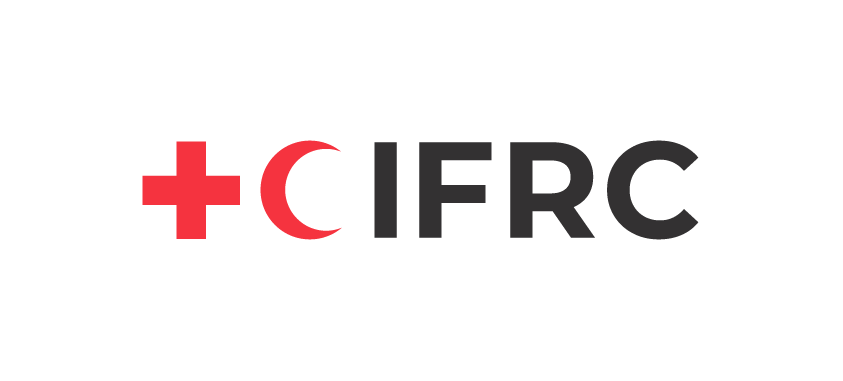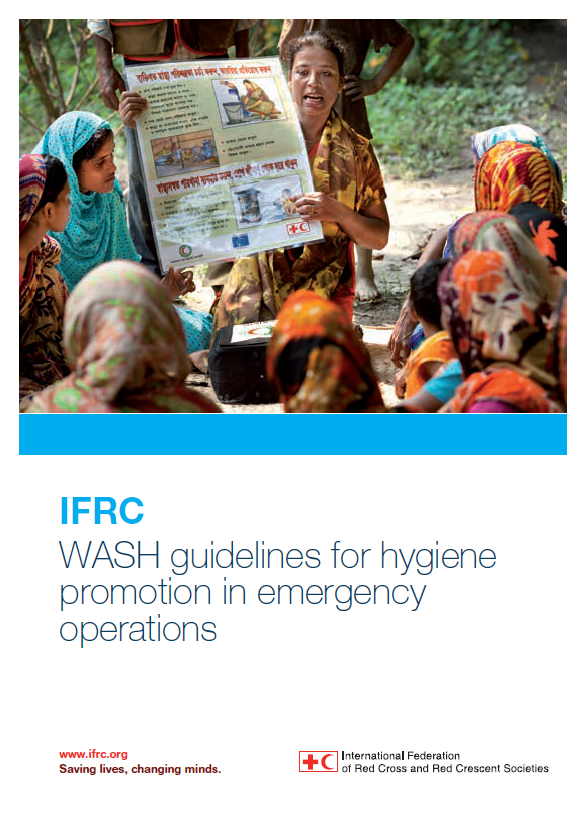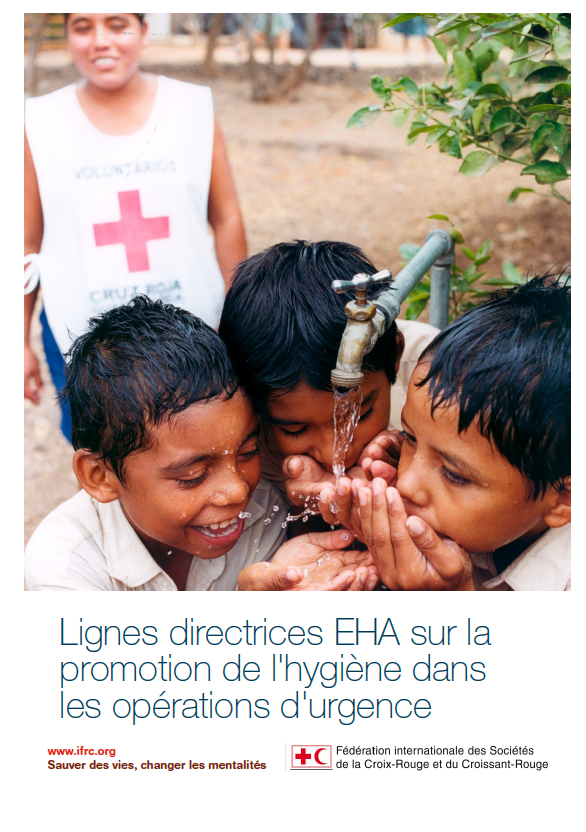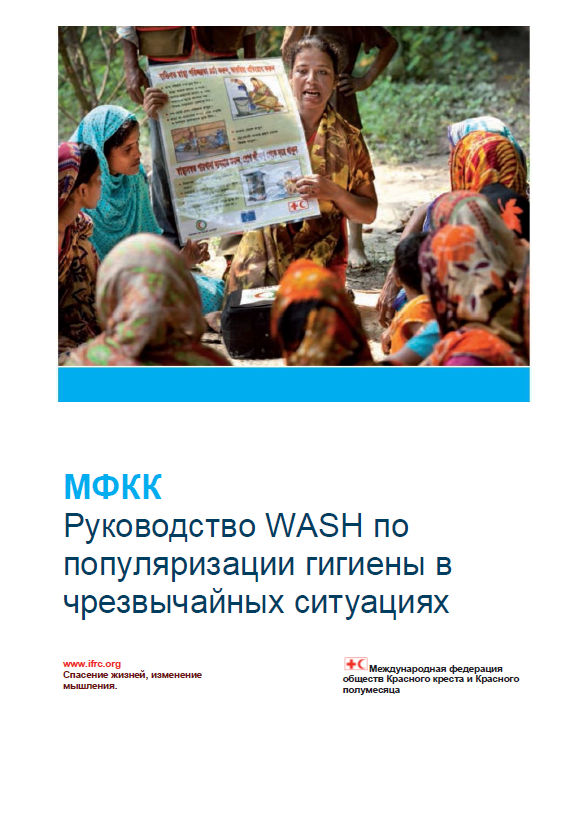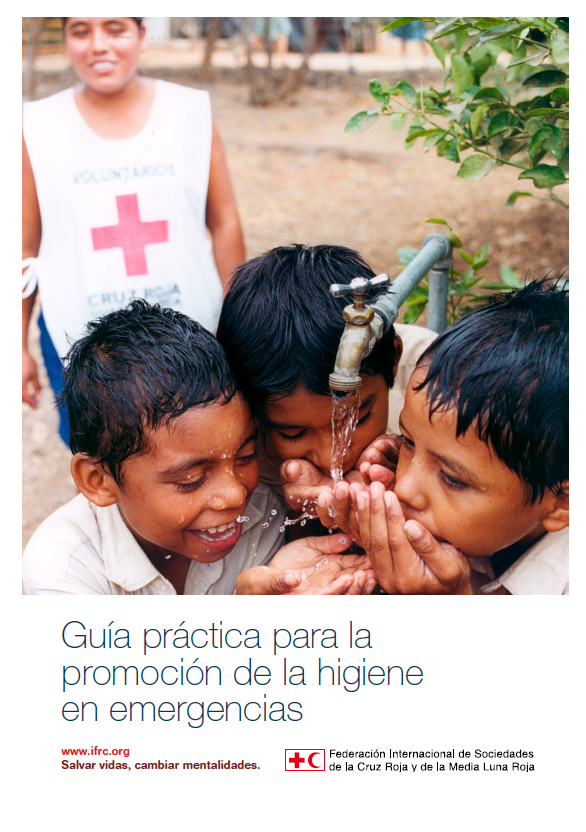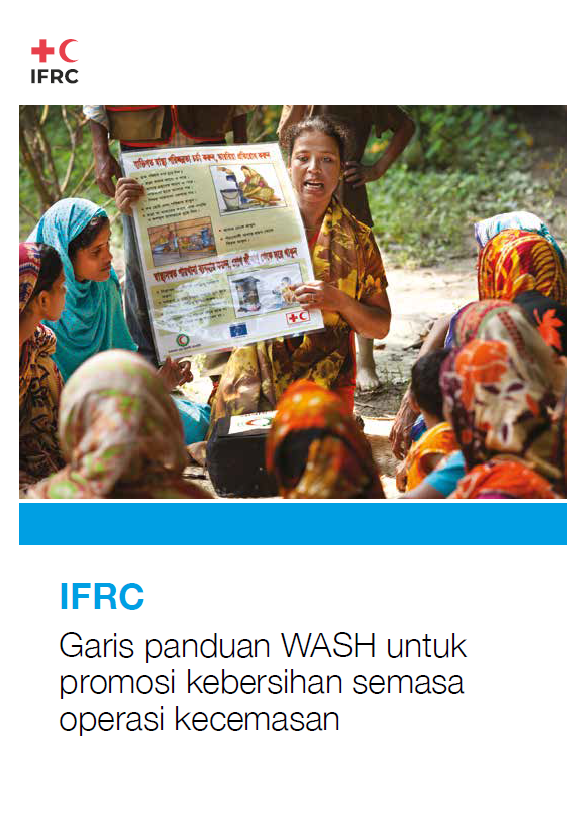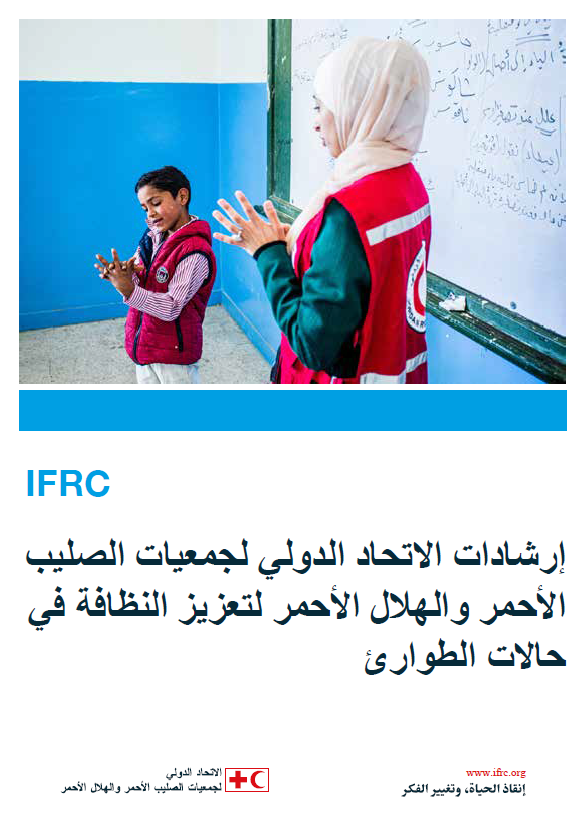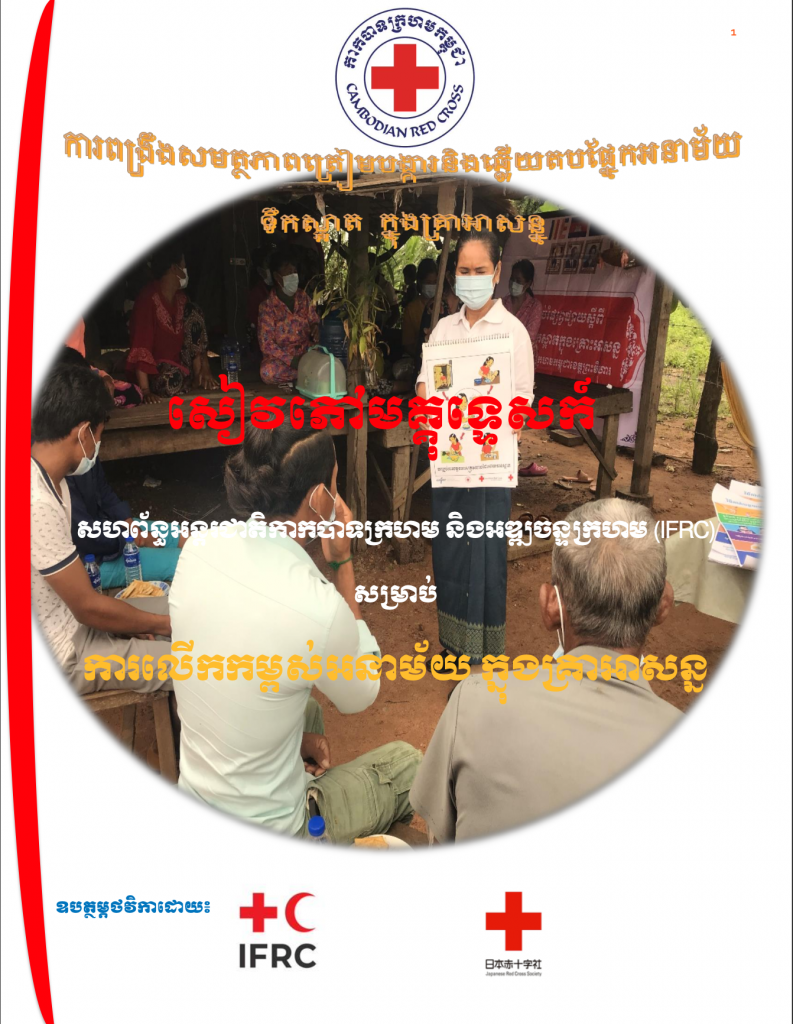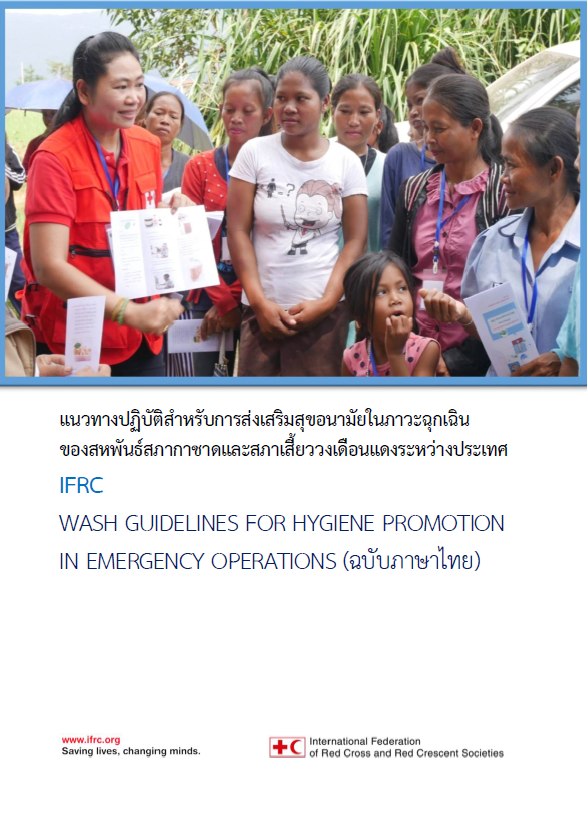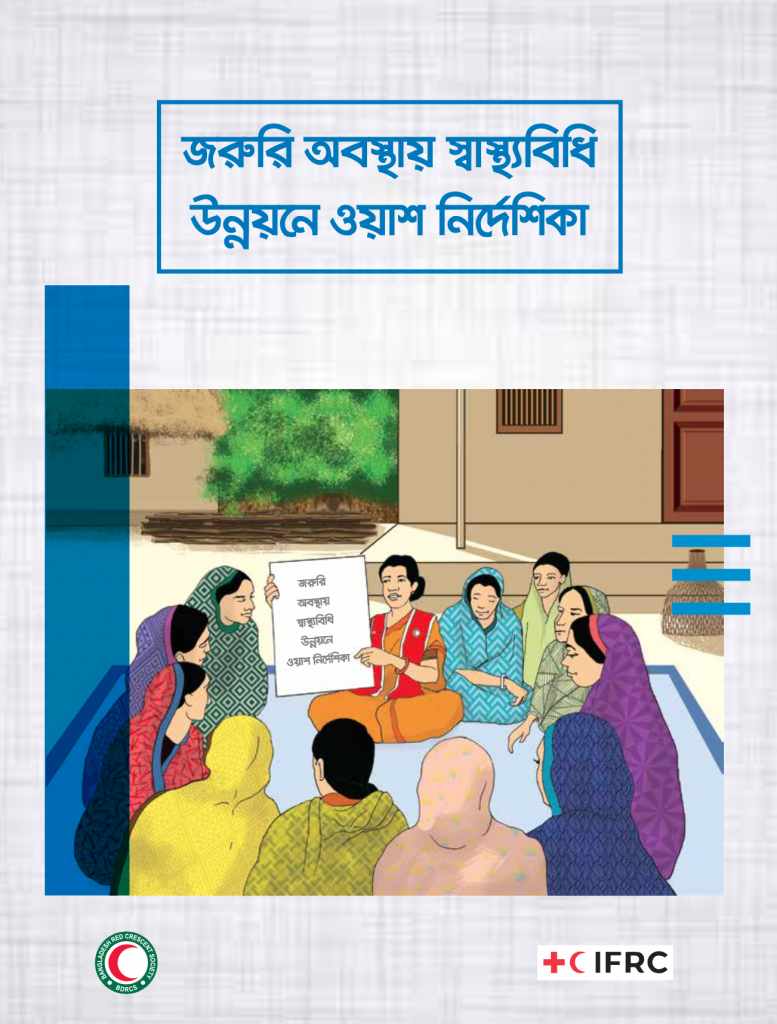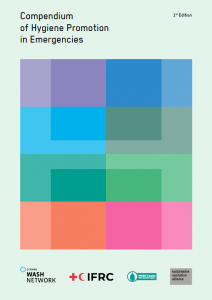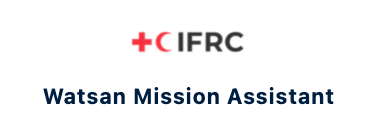
Emergency Hygiene Promotion
Hygiene promotion (sometimes called “WASH software”) is the foundation of any successful WASH programme. It is a planned, systemic approach to working with communities, enabling people to change behaviour and to use and maintain improved water and sanitation facilities for better health, dignity and wellbeing.
Key components of hygiene promotion in WASH emergencies operations include facilitating the community-led decision making processes and maintaining a close link with WASH technical counterparts, understanding the community and the socio-cultural context related to WASH, behaviour change and communication, listening and acting on feedback, and strengthening accountability through inclusive participation.
Guidelines and tools
Red Cross Red Crescent Guidelines and tools
IFRC WASH guidelines for hygiene promotion in emergency operations (English)
These guidelines outline a step-by-step process for Red Cross Red Crescent staff and volunteers to plan and implement effective, context appropriate hygiene promotion, without taking shortcuts or delivering ‘hygiene messages’. The guidelines provide National Societies with a standard approach for quality assurance, and an opportunity for more effective training and monitoring.See below for other languages – Click on any image to download the guideline
Step-by-step resources and relevant documents
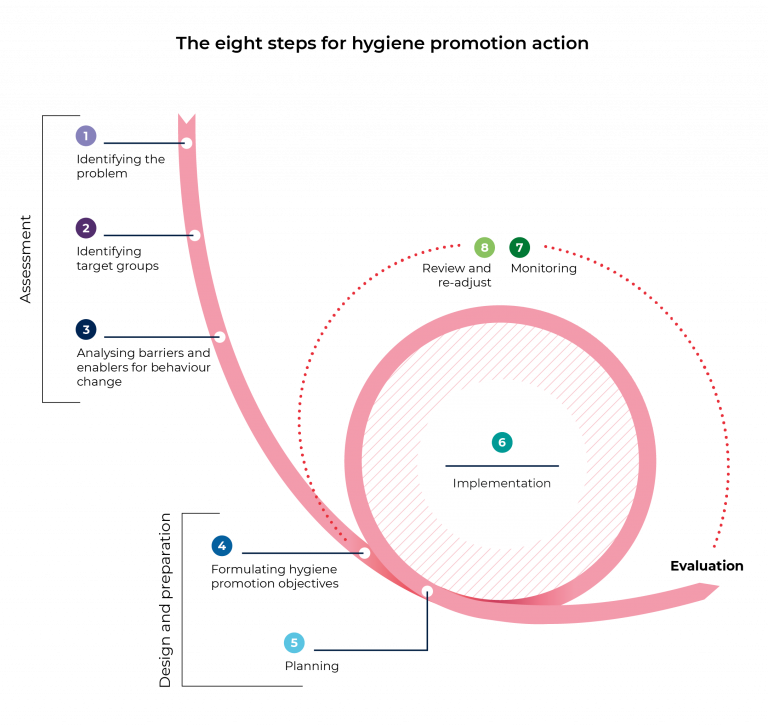
Assessment
- Sphere WASH Initial Assessment Checklist in English
- IFRC WASH Focus Group Discussion (FGD) guide – including PGI and CEA considerations in English, Spanish, French
- IFRC Guidelines for Emergency Assessment in English, French, Spanish, Arabic
- IFRC Transect walk and observation Guide English, French, Spanish, Arabic
- IFRC Focus group discussion Menstrual Hygiene Management English, French, Spanish, Arabic
- Gender in water, sanitation and hygiene promotion English, French, Spanish Arabic
- Cheat sheet – Behavioral determinants Doer/Non-Doer Analysis – Handwashing, Use of latrines
- IFRC HP box contamination explanation English, French, Spanish, Arabic
- HP Box Contamination Cards – Asia
- IFRC HPbox Three pile sorting instructions English, French, Spanish,Arabic
- IFRC HPbox three pile sorting – Asia
- IFRC HPbox Pocket chart English, French, Spanish,Arabic
- IFRC HP box pocket cards
Planning
Implementation
Monitoring, evaluation & learning
Post deployment
External Guidelines and Tools
Compendium of hygiene promotion in emergencies website
This compendium is a comprehensive and systematic compilation of the most relevant sector-reviewed components, tools, methods and approaches to design and implement successful hygiene promotion (HP) and behavior change interventions. It is applicable to all critical hygiene behaviors across all response phases.
Learning resources
Advocacy and communication material
To include resources on this page, or for more information on IFRC initiatives please contact: Alexandra Machado or wash.geneva@ifrc.org
